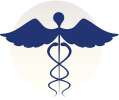Loneliness Hurts the Heart
How this chronic form of stress can lead to heart disease
Lead writer: Ray Hainer
From Health.Com
Being alone can break your heart—literally.
People who lack a strong network of friends and family are at greater risk of developing—and dying from—heart disease, research shows. According to some studies, the risk of solitude is comparable to that posed by high cholesterol, high blood pressure, and even smoking.
Experts haven’t pinpointed exactly how social networks protect against heart disease, but there are a number of probable explanations. People who are socially isolated are more likely to drink, smoke, and get less exercise. And once someone has heart disease, friends and family often provide key support, such as picking up prescriptions, encouraging exercise, cooking healthy meals, and helping with household chores.
While that everyday help is important, it’s not the whole story. In recent years, researchers have begun to unravel the cardiovascular effects of social isolation, and they’ve discovered that feeling alone may hurt the heart even more than actually being alone.
“We started looking at social isolation about 20 years ago, and we found fairly quickly that objective social isolation in everyday life isn’t as important as perceived social isolation,” says John Cacioppo, PhD, a professor of psychology at the University of Chicago. “And there’s a term for perceived social isolation: It’s loneliness.”
What we call loneliness—the feeling that you have no one to turn to, that no one understands you—is a form of stress. And if it becomes chronic, it can wreak havoc on your blood vessels and heart.
What is loneliness?
Though the concepts are sometimes used interchangeably, loneliness is distinct from social isolation (also known as low social support). There’s some overlap between the two, but not as much as one might think.
Social support is typically measured using a handful of characteristics such as marital status, number of friends, and participation in group activities (such as churchgoing). Low scores on these measures don’t necessarily correspond to loneliness, however. Some people need more “me” time than others, after all, and some people are content with just one or two close friends.
To factor in these individual preferences, researchers define loneliness as the gap between a person’s desired and actual social relationships—a subjective measure that’s most easily gauged with questionnaires. To put it another way, social isolation mainly describes the extent of a person’s social network, while loneliness emphasizes quality, rather than quantity, and describes the satisfaction and comfort a person derives from their interpersonal relationships. It’s the difference between the amount of food on your plate and how good it tastes.
Fifteen years ago, after undergoing surgery to replace a heart valve, Dale Briggs, 63, of Clovis, Calif., felt anxious and isolated, not like himself at all. Briggs rated high on the social support scale—he’s married, he’s a weekly churchgoer—but he felt that he wasn’t connecting with people anymore.
“During that period I could have had 15 people in my house all the time, but I would have traded them all for someone who had been through what I’d been through and who I could talk to about it,” Briggs recalls. “I felt isolated in my mind, like I couldn’t relate to anybody.”


